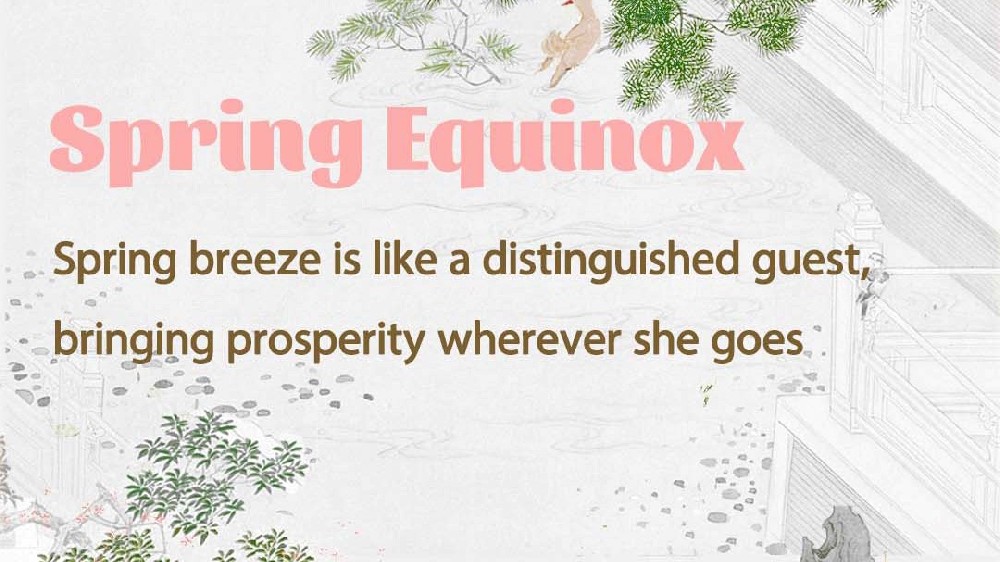Gareth Bonello: unlocking Li Bai’s romantic poetry through music
Drinking beneath the blooming peach blossoms, gazing at the waterfall on Mount Lu and bathing in the Mid-Autumn Festival’s full moon…Welsh musician and songwriter, Gareth Bonello, shares the romantic poems of Li Bai with Western listeners through music. In 2011, Bonello took up a residency in Chengdu and produced Y Bardd Anfarwol (The Immortal Bard), an album based on the life story of the famous Chinese poet Li Bai.
Bonello is fascinated by Chinese traditional music, and Y Bardd Anfarwol merges Li Bai’s poetry with Welsh traditional music, Welsh folklore, and Chinese traditional instruments, such as the erhu, guzheng, pipa and xiao. This harmonious fusion transcends spatial and cultural boundaries, and even today Bonello performs songs from this album at his live performances; they are on the set list of his UK tour this summer.
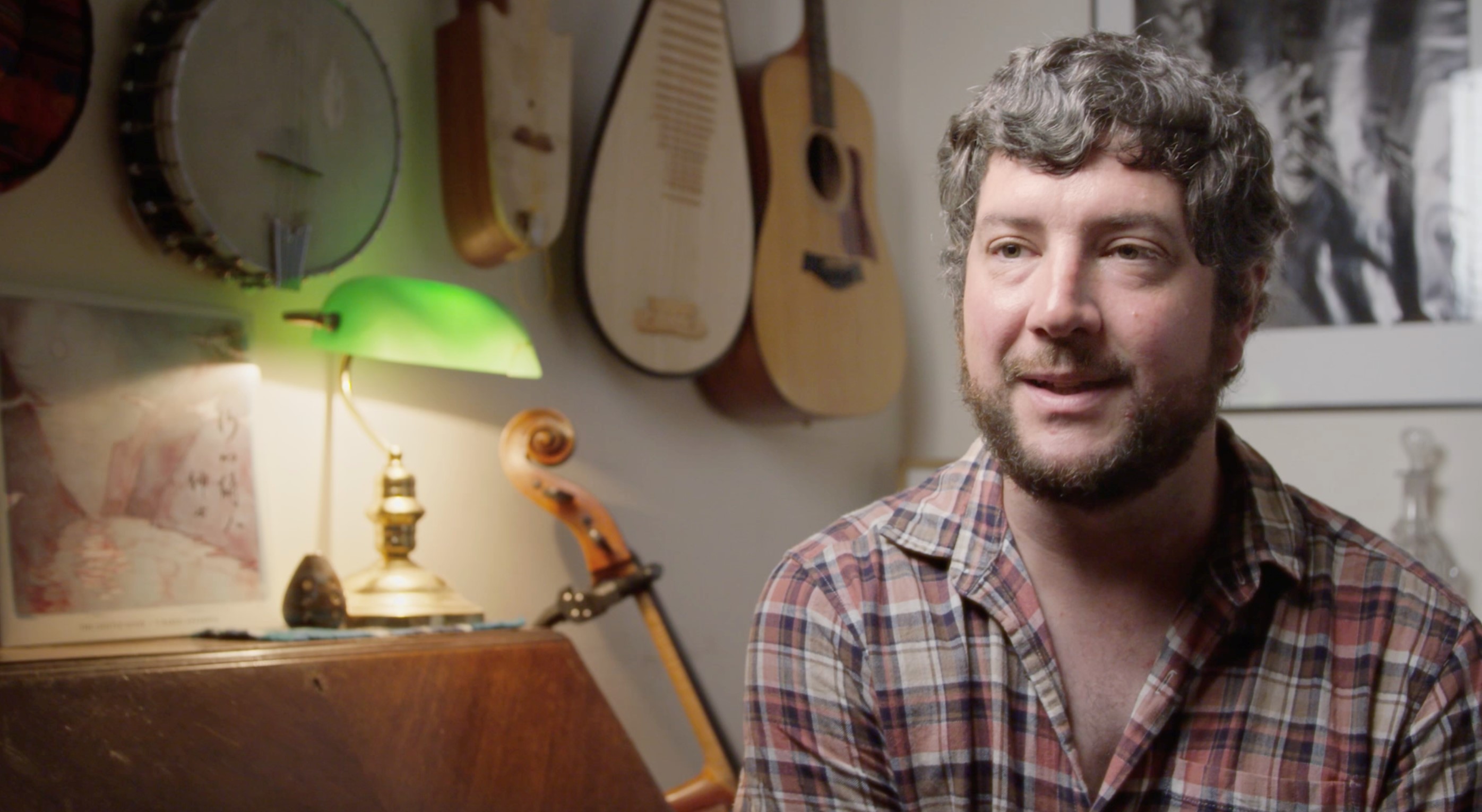
Gareth Bonello (Photo/ Patrick Shead-Simmonds)
In recent years, Bonello has been studying for a PhD with the University of South Wales, delving into the music of Khasi Hills in Northeast India and the links between Wales and the region, which has brought in more musical traditions into his work. Going forward, Bonello hopes to write more music with Chinese musicians to open another window for Westerners to understand Chinese history and culture.
A musical encounter with Chengdu
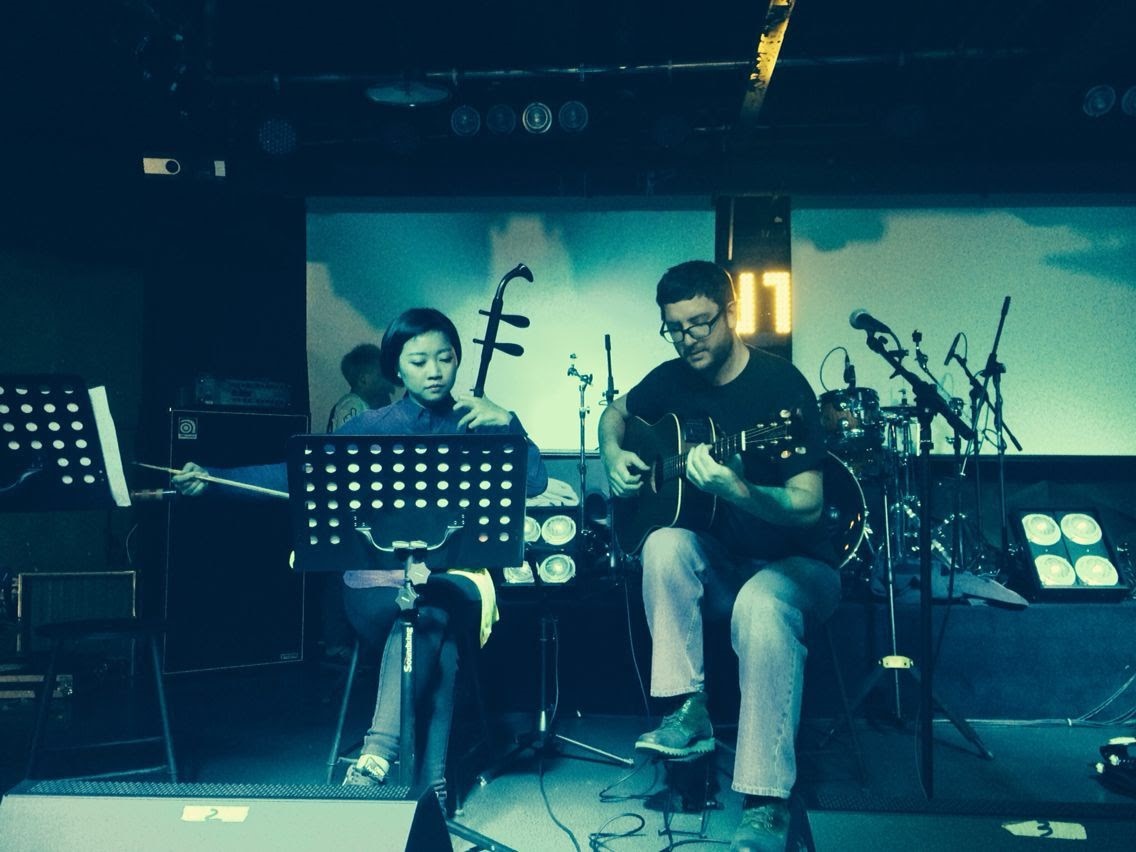
Gareth Bonello performing in Chengdu
People’s Daily Online: You first visited Chengdu as a musician in residence to find inspiration for your music. What impression did Chengdu leave you with?
Gareth Bonello: In 2011, I was given the opportunity to take up a residency at the Chengdu Associated Theatre of Performing Arts , organised by the British Council and PRS Foundation. I was there for seven weeks and worked with many musicians from the Associated Theatre. I have never been to China before, so this was really an experience for me. I was completely blown away by Chengdu. The impression I had was of a city that was rapidly being built up. It was busy, but also continued to be connected to its heritage and its past. The other thing about Chengdu was the delicious food. I have never come across food like that before so much spice and heat.
People’s Daily Online: Working as a musician in residence in Chengdu, you had many opportunities to exchange ideas with local Chinese artists. What were some of the more memorable exchanges?
Gareth Bonello: While I did my best to try to pick up as much Chinese as I could in Chengdu, my Chinese was still a work in progress, and most of the musicians at the Associated Theatre did not speak English either. So, we were communicating through music. I think the strength of music is that you do not need a language and you do not need to share even a culture; people can appreciate music on an emotional level and on an intellectual level. I had an amazing exposure to music, dancing, and lots of instruments that I had never heard before. I sat with the musicians individually and asked them to play me something from their instruments, so I could get a sense of what the instrument sounded like. I just remember the first time I heard Jiang Qian playing the guzheng on live. It blew me away. The range of sounds that she was able to get out of it, the story, and the journeys she could take you on through playing some traditional Sichuan pieces and well-known traditional Chinese pieces were just fantastic.
People’s Daily Online: What aspects of Chinese music did you enjoy the most?
Gareth Bonello: I was fascinated by the variety of sounds that Chinese instruments could make and gradually got to know the range of the instruments and what they can do. The Chinese scales were very interesting, following a pentatonic scale, and that was one of the first times I had come across scales like this outside of Blues tradition. The variety of melodies that were being presented to me through these five notes was just beautiful. I found the tradition of making sounds that imitate certain animals or scenes in Chinese music very interesting. Musicians would pluck the cajon to make it sound like a goose or a flock of geese coming in to land. Music is not just melodic but abstract, as well as creating sounds that you hear in the natural world. This really inspired me.
Using Welsh music to understand Li Bai’s poetry
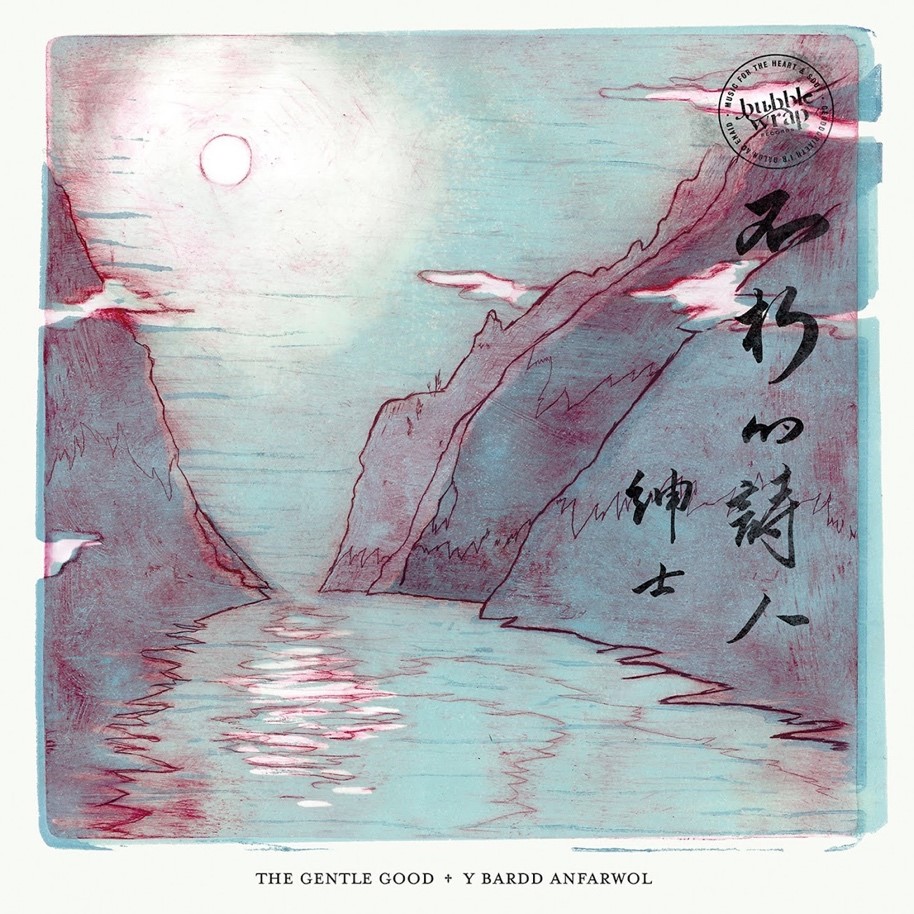
Y Bardd Anfarwol (The Immortal Bard)
People’s Daily Online: Li Bai is one of the most famous poets in China, but Westerners know very little about him. Could you share with us the story behind Y Bardd Anfarwol?
Gareth Bonello: I wanted to tell the story of Li Bai through music, and the album explores from his young early days leaving home and trying to find inspiration in the mountains and then goes to his death. Many songs in the album used Li Bai’s own words or his own images to describe his life journey, including poems like Ballads of Four Seasons, Quiet Night Thought and Drinking Alone Under the Moon. My song Antiffoni was inspired by Li Bai’s Question and Answer on the Mountain and The Priest of T’en Mountain. In the song, I wrote “Bu’m ar daith dros bryn a ddŵr/ Am gyngor gŵr doeth penwyn/ A oes hadau wedi’u hau/ Ymhlith y blodau eirin?” Li Bai writes so romantically, and I find it very magical that Li Bai could convey profound ideas through a few simple lines of poetry. I think this is why he is one of the most famous Chinese poets.
On top of that, I wanted to do a sound portrait of Chengdu. I was doing a lot of field recordings of different spots in Chengdu, for example, people selling noodles, workers labouring on construction site and birds singing in the park, to try to capture some of modern China. I wanted to give something back to Chengdu because the musicians I collaborated with for this album were all based there.
I collaborated here in the UK with The Mavron String Quartet, a composer called Seb Goldfinch and the UK Chinese ensemble based in London, as well as recording some of the pieces that had elements of Chinese traditional music in Chengdu with local musicians. So, in the end, it was a real collaboration of musicians from Wales, from London and from China.
People’s Daily Online: How was the album received by listeners in the West?
Gareth Bonello: Y Bardd Anfarwol was very popular and particularly well received in Wales. People were very fascinated by it because there had not been anything like it done before. It won the Welsh Language album of the year in the 2014 Eisteddfod, which is a high honor in Welsh culture. I felt glad about sharing the work I have done in China with people from different places, which has allowed a lot more people in Wales now to have an understanding of Li Bai and Chinese traditional music. The album also inspired a Welsh stage production called Rhith Gan by Wyn Mason. Mason became fascinated by Li Bai because of my album and wrote a modern drama about the relationship between a daughter and a father. Li Bai is kind of like a spirit guide, appearing as the father’s mentor in the play. I was able to provide musical accompaniment to the performance, playing the pipa and guitar off the side. The production won a drama medal at the 2015 Eisteddfod.
People’s Daily Online: People can connect with music through melody without being able to fully understand the lyrics. Many Chinese people bonded with your music, even though it was written in Welsh. How was the reception for this album among Chinese audiences?
Gareth Bonello: Chinese audiences were really interested in the combination of Welsh folk and classical style music with traditional Chinese music, which they had never heard before. They were fascinated to learn more about the work that I had done, as well as why I was interested in Li Bai and Chinese traditional music. I was invited to perform Y Bardd Anfarwol in many Chinese cities including Beijing, Chengdu, Chongqing, and Kunming. I had a wonderful time touring, and it was the first time I have been reunited with the musicians that had recorded on the album back in 2013.
Sharing is the strength of music
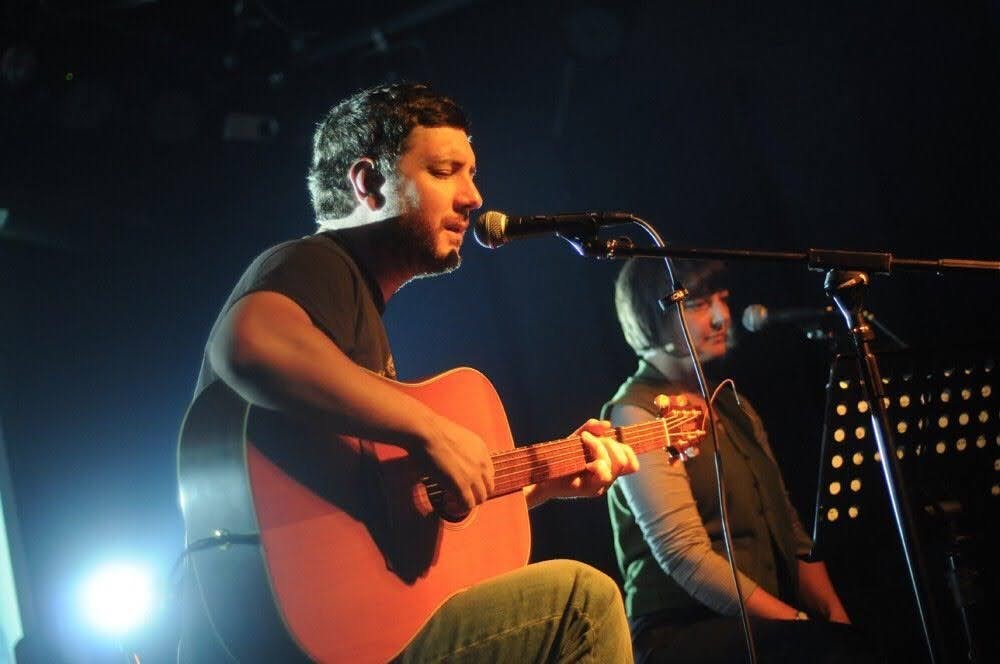
Gareth Bonello
People’s Daily Online: How do you bring together elements of Chinese music with Welsh traditional music and folklore in your work?
Gareth Bonello: At the moment I have been working on a new album of Welsh traditional music and the collaboration with the musicians in China had made me rethink and relearn the way that I played the guitar, which remains to this day. So, when I play the guitar, sometimes it can sound like a Chinese instrument, or it can sound like Chinese scales. I still do play some of the songs from Y Bardd Anfarwol live. For instance, last weekend I was in Swansea, and I played one of the travelling songs, Yr Wylan Fry, which is about Li Bai's departure from White King City. Hopefully one day I will get a chance to play the album in its entirety again with all the musicians.
People’s Daily Online: Recently, you have been studying for a PhD at the University of South Wales, exploring the music of Khasi Hills in Northeast India. What is the value of understanding different musical traditions and collaborating with people from all over the world?
Gareth Bonello: International collaborations is not just about creating a piece that works together, but also to understand your own culture a little better and then reflecting it back to your people. I hope through interacting more with other cultures through music, there will be better understanding between cultures. If international collaboration is done right and sensitively with trust, it is very valuable. It is much better that people are talking with instruments and sharing rather than arguing over tables or with guns. Sharing is the strength of music and a way to bring people from different cultural backgrounds together. Music is a way of communicating without language.
People’s Daily Online: To continue cultural exchanges, what new collaborations do you hope to form with Chinese musicians in the future?
Gareth Bonello: An aspect I did not explore before was folk music. I would be fascinated to learn more about Chinese folk music, which is more earthly than traditional Chinese music. To do that I would probably need to visit more remote areas and villages, which is the kind of work I have been doing in northeast India recently. I feel that there is a lot of interchange between Northeast India and Southern China, particularly places like Yunnan. So, it would be interesting to have a collaboration between musicians from these two regions. I would love to do more collaborating with Chinese musicians going forward, and I think also it would be really fascinating to bring in more Welsh musicians.
